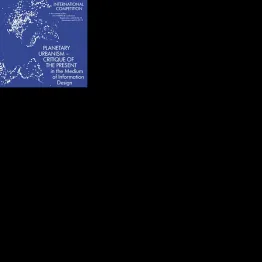Hastened by industrialisation, the progressive urbanisation of our world has profoundly transformed the planet and continues to do so. The impacts of these changes have not yet been grasped in full, and an end to this process is not foreseeable.
What does this urbanisation of the world mean, and what are its consequences? How does a city or an agglomeration function today and what, or how much, do we in fact know about this? How do the electronic and physical worlds intersect and which tendencies are found in both? These and similar questions form the point of departure for this international competition.
Today, the difficulty of empirically describing reality no longer lies in a lack of information, but, to the contrary, in the constantly growing amount of data that makes it difficult to draw an overall picture of society and to distinguish between what is important and what is unimportant.
Information design is more than a collection of data: information design uses data to create statements that provide insights into societal circumstances. Information design reveals connections behind the surface of the phenomena. Information design provides orientation. It creates a hierarchy of information based on relevance and content. It reduces complexity, thereby creating an overview.
An enlightening, emancipatory information design reveals facts that are repressed, not spoken of, or forgotten, but that are nonetheless essential for understanding the present. And it thereby influences the perspective of societal activity. The image of the world we make for ourselves determines how we act.
Possible topical groups that may be developed as main focus areas are:
• Urban metabolism
• Spatial Structure
• Population
• Social Innovations
• Digital City
• Real Estate Industry
Cooperation between designers and scientists in interdisciplinary teams is recommended.
There is no entry fee.
Eligibility
The competition is intended for:
• Designers from the fields of architecture, urban and regional planning, environmental planning, graphic, product and media design, statistics, cartography, photography, film and the visual arts
• Scientists from the fields of art and cultural theory, art education, information and communication sciences, social sciences, economics, environmental sciences and geosciences
• Students from both of the above fields.
Prize
Prize money: 20,000 Euro (approx. 24,800 USD).
Moreover, the competition entries will be published by the organisers and exhibited in the context of the UN-Habitat III Conference 2016.



